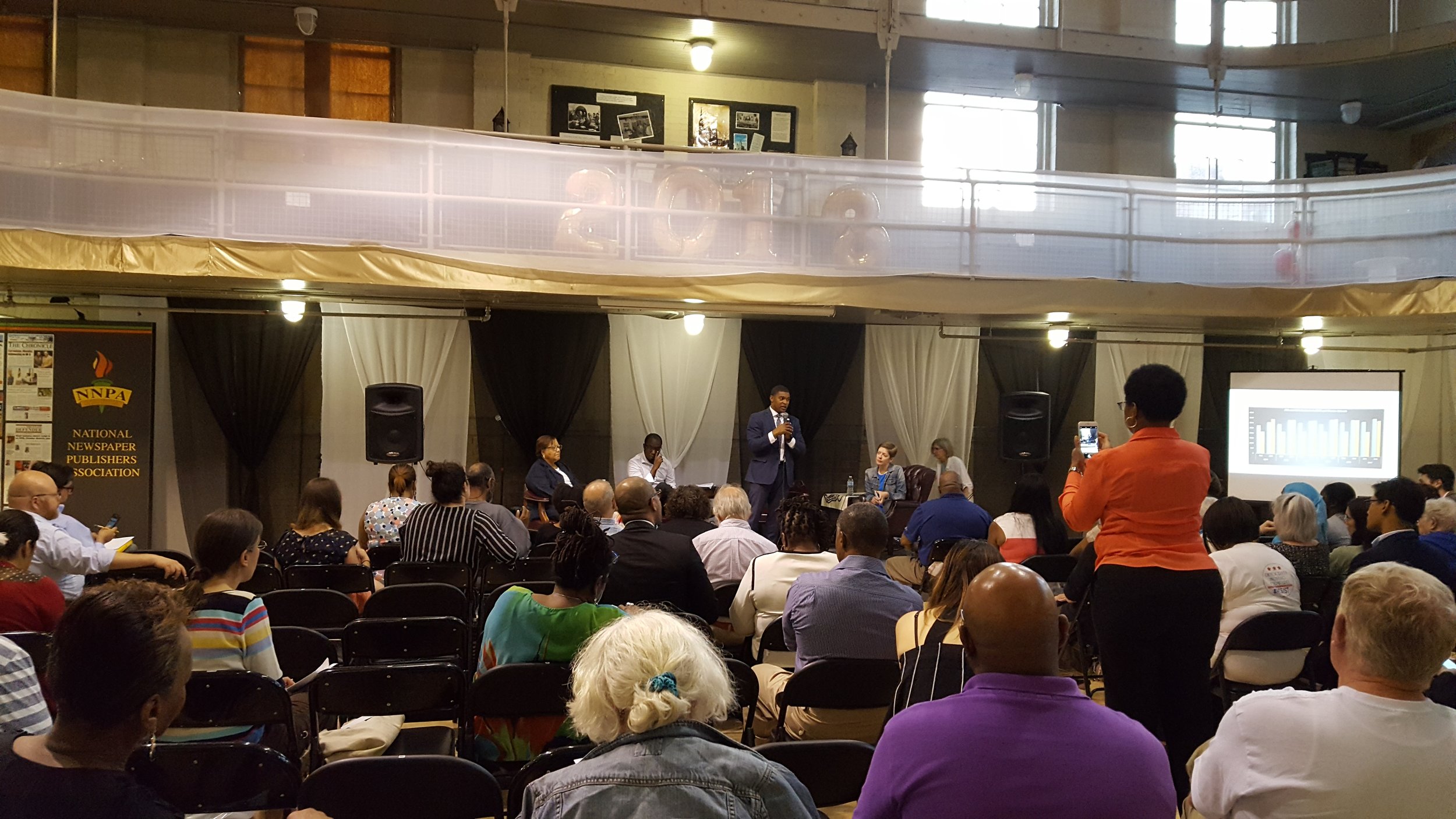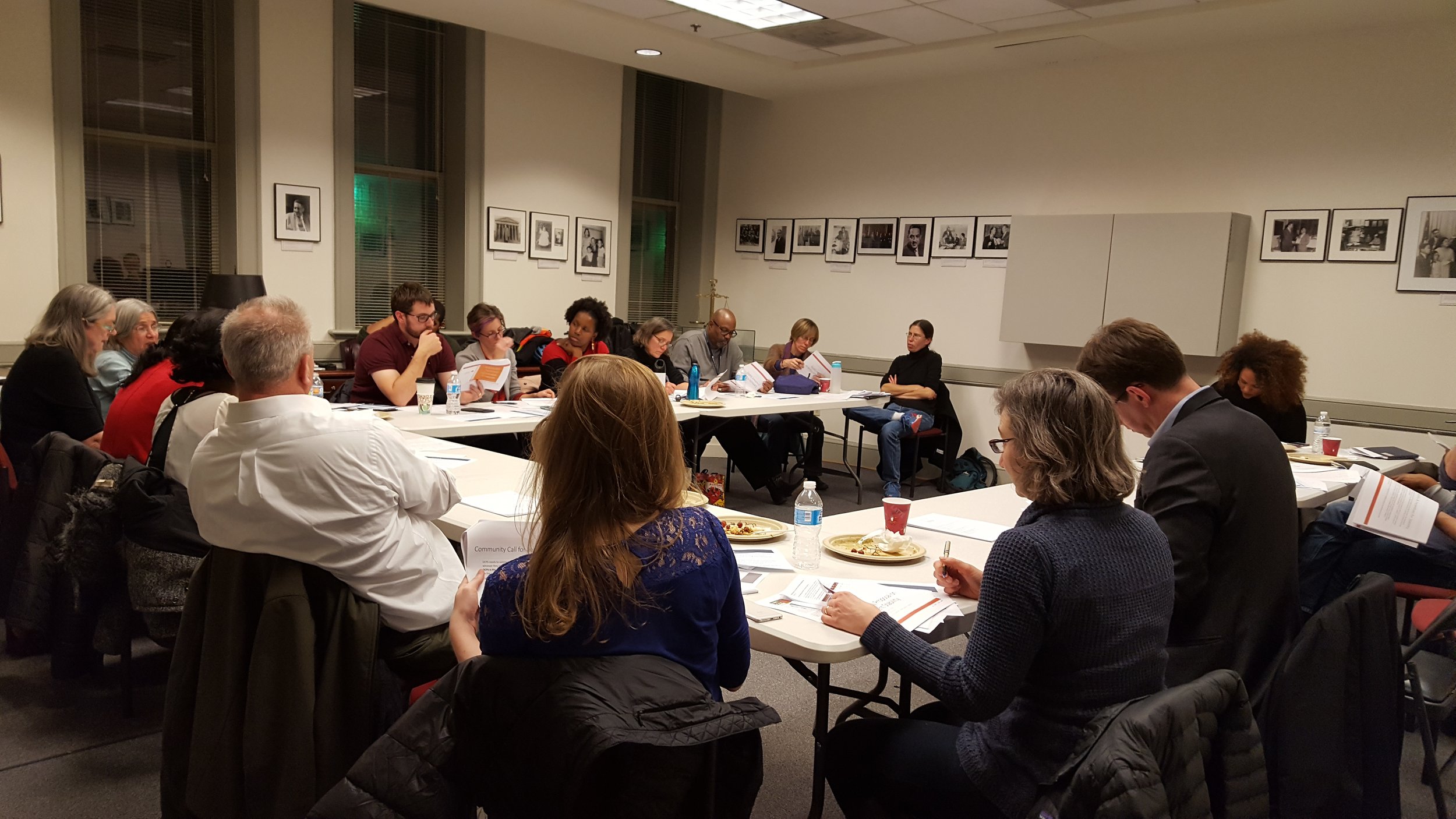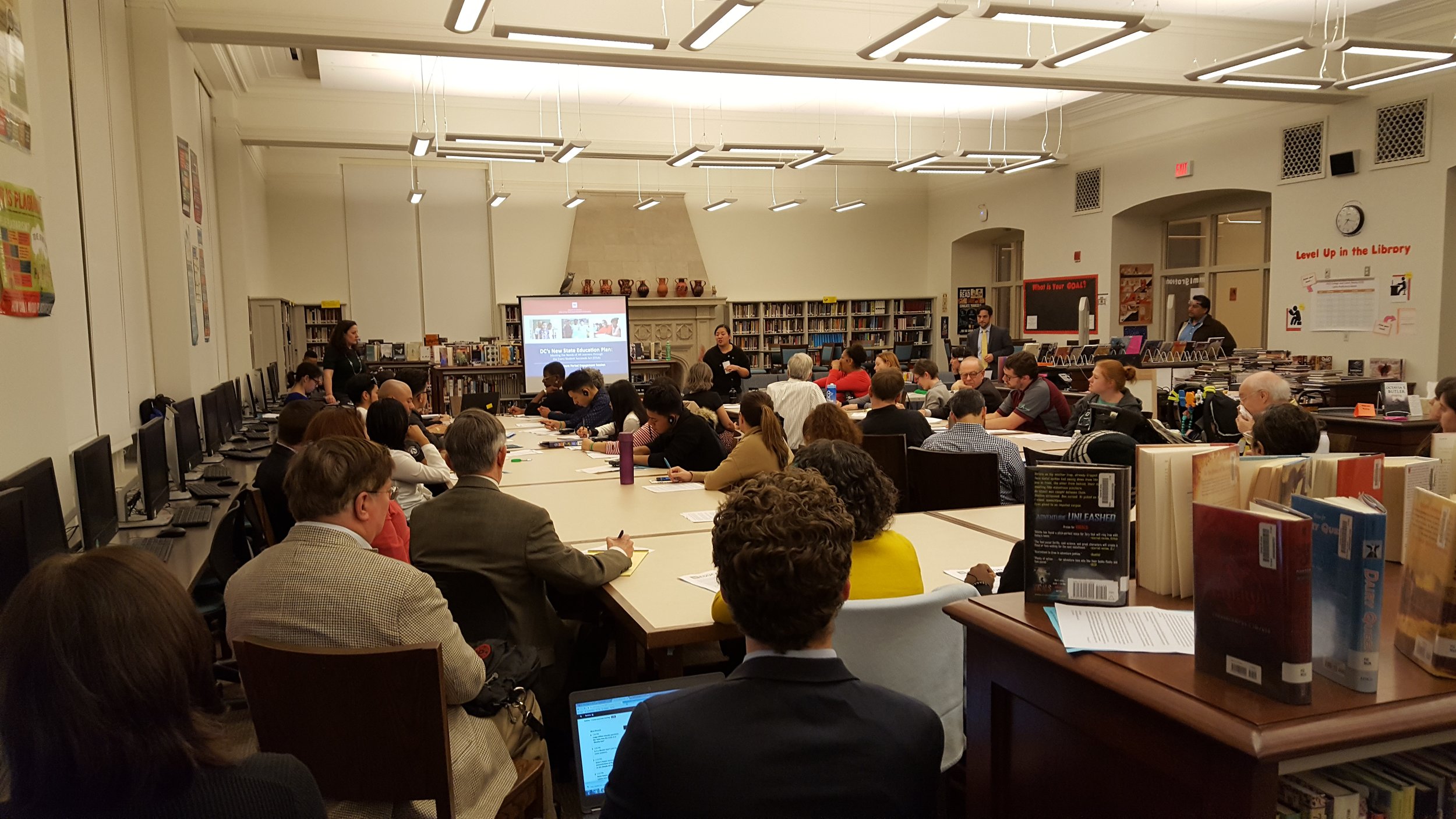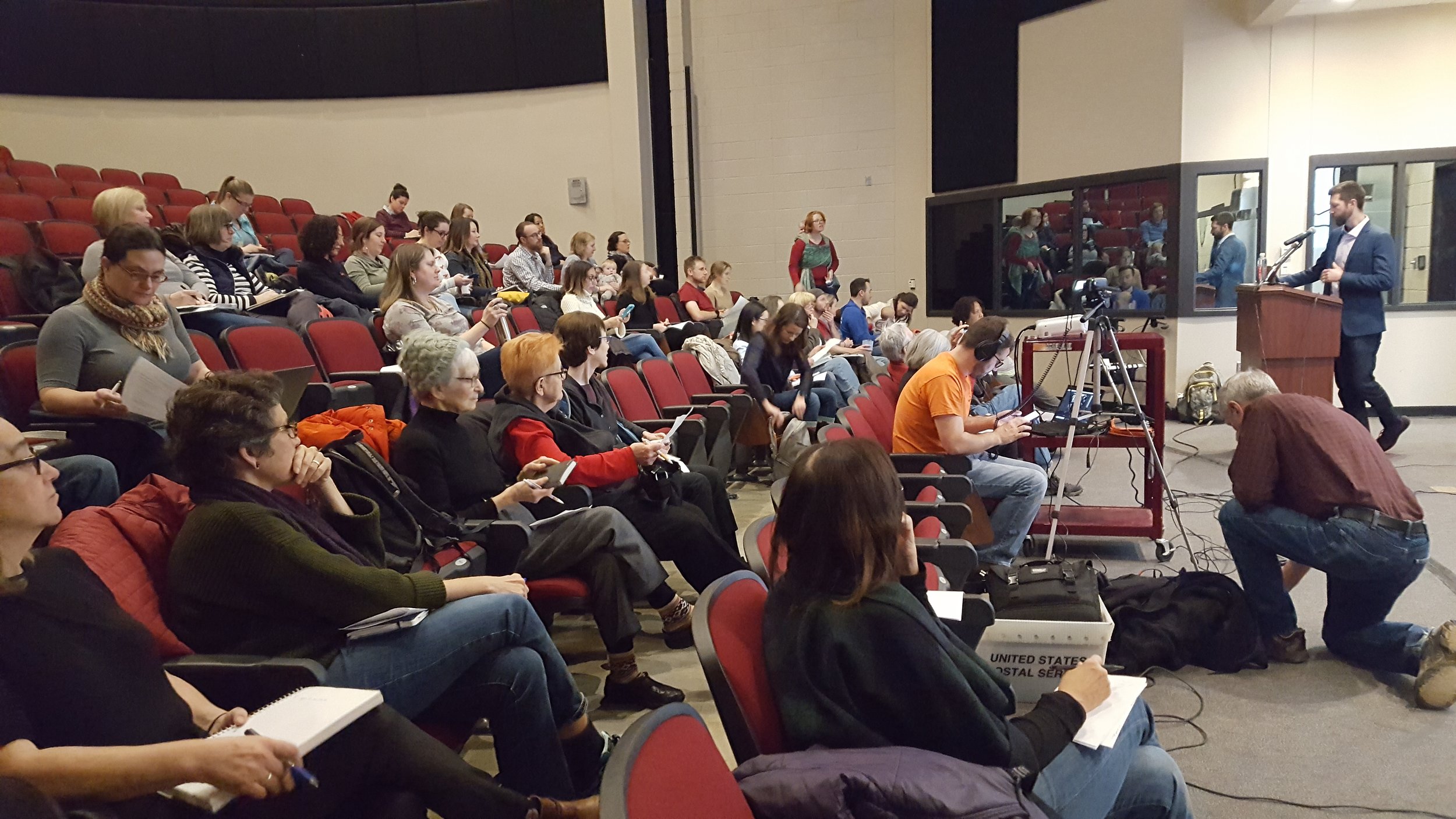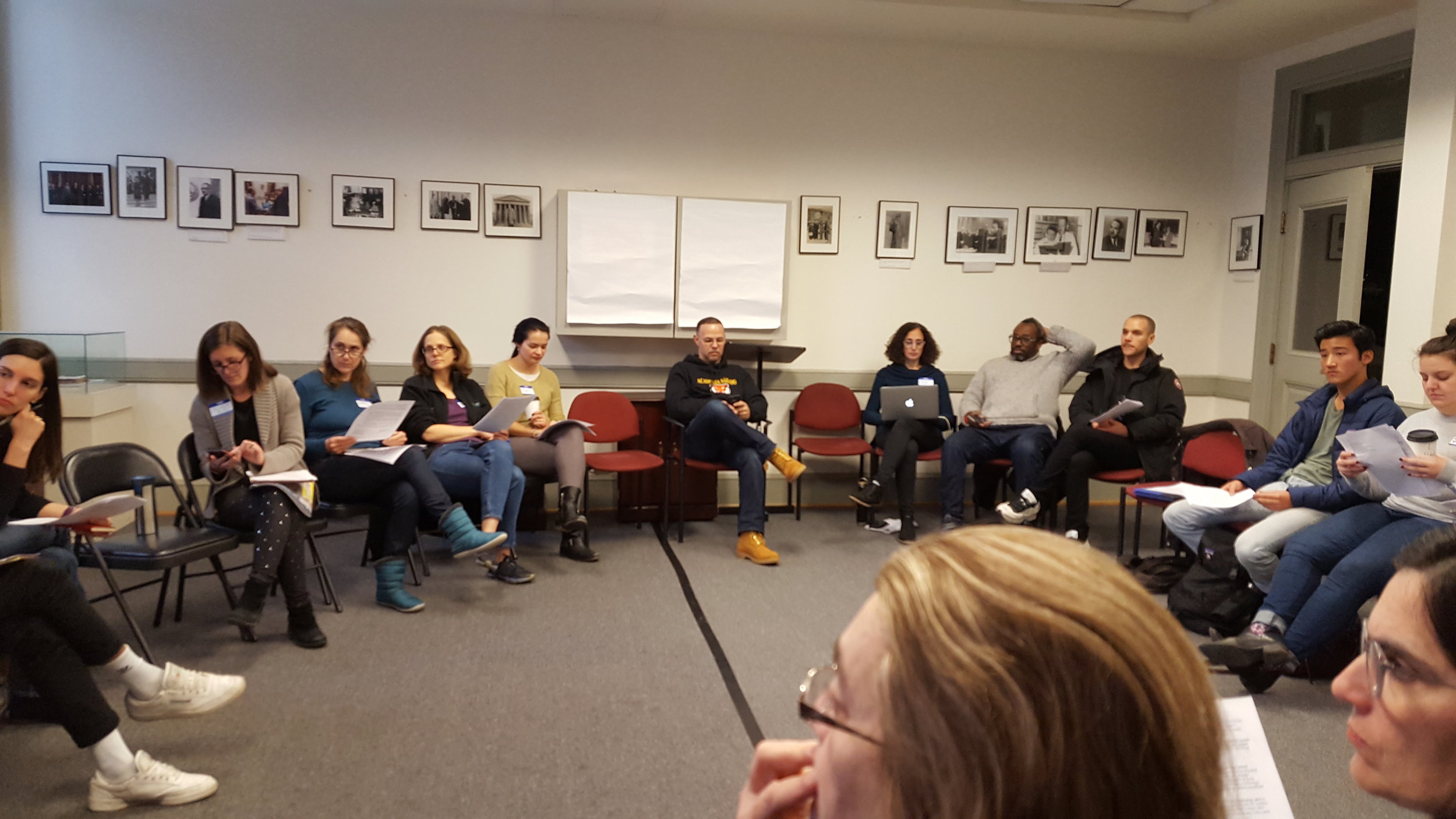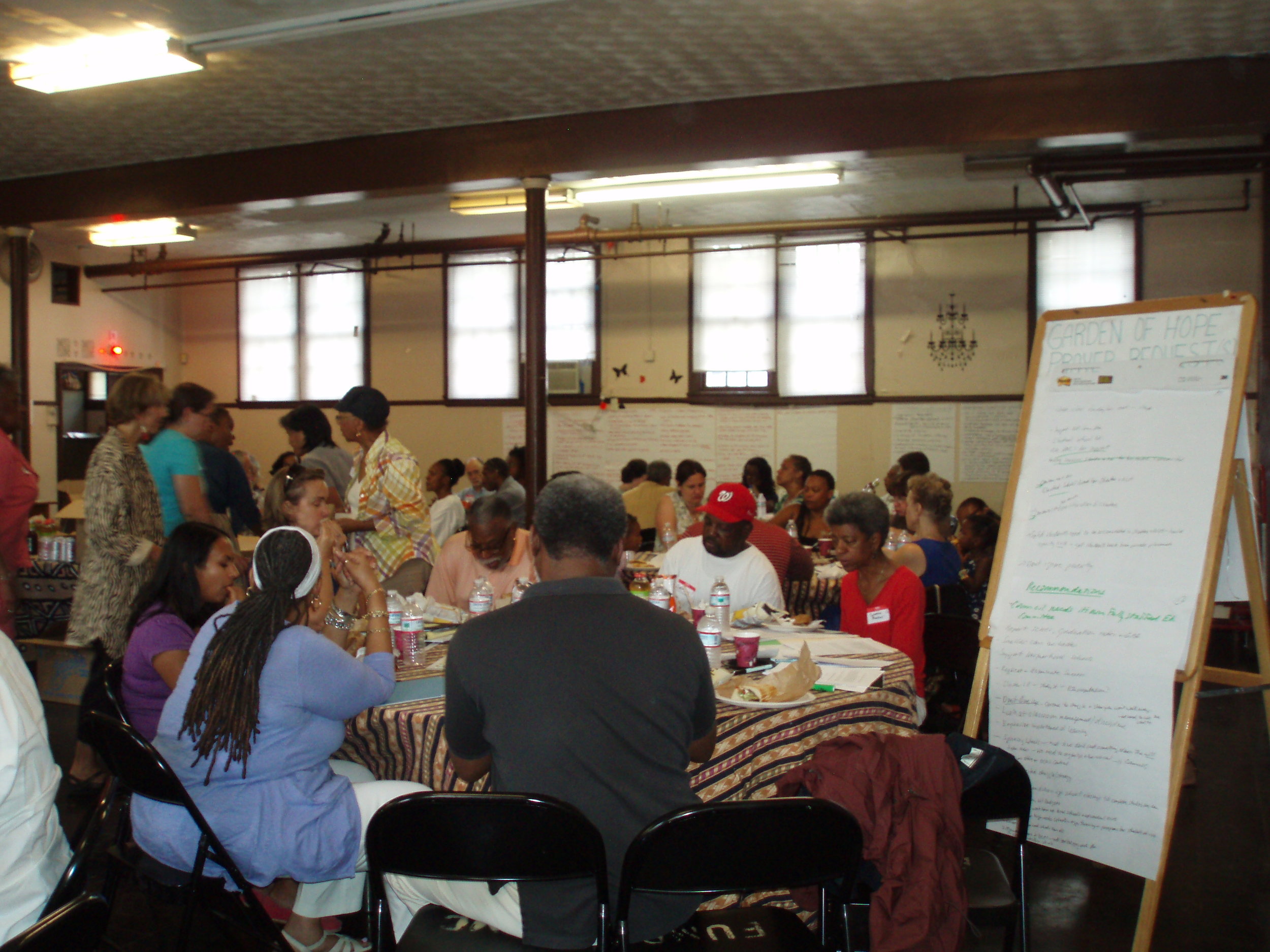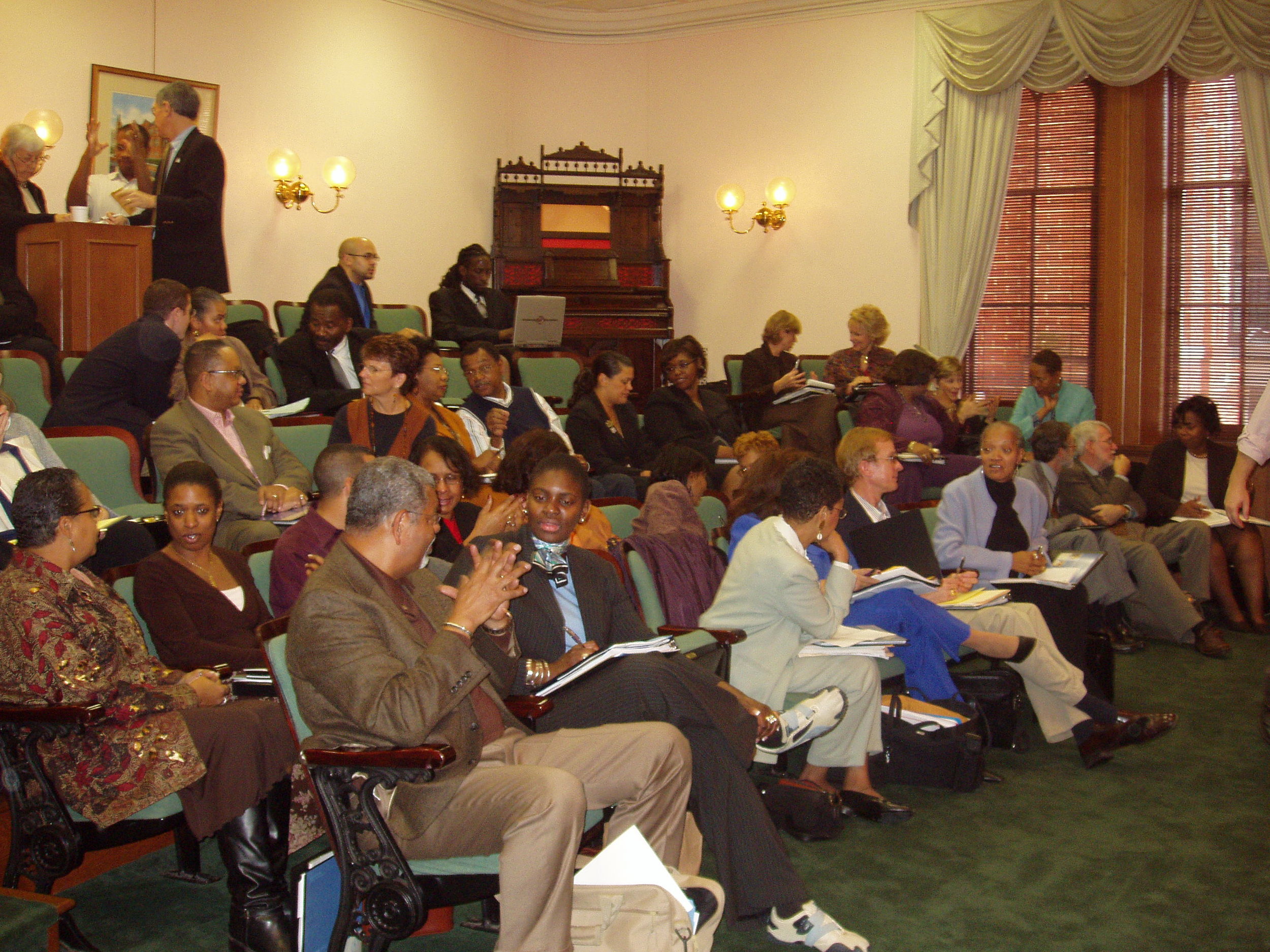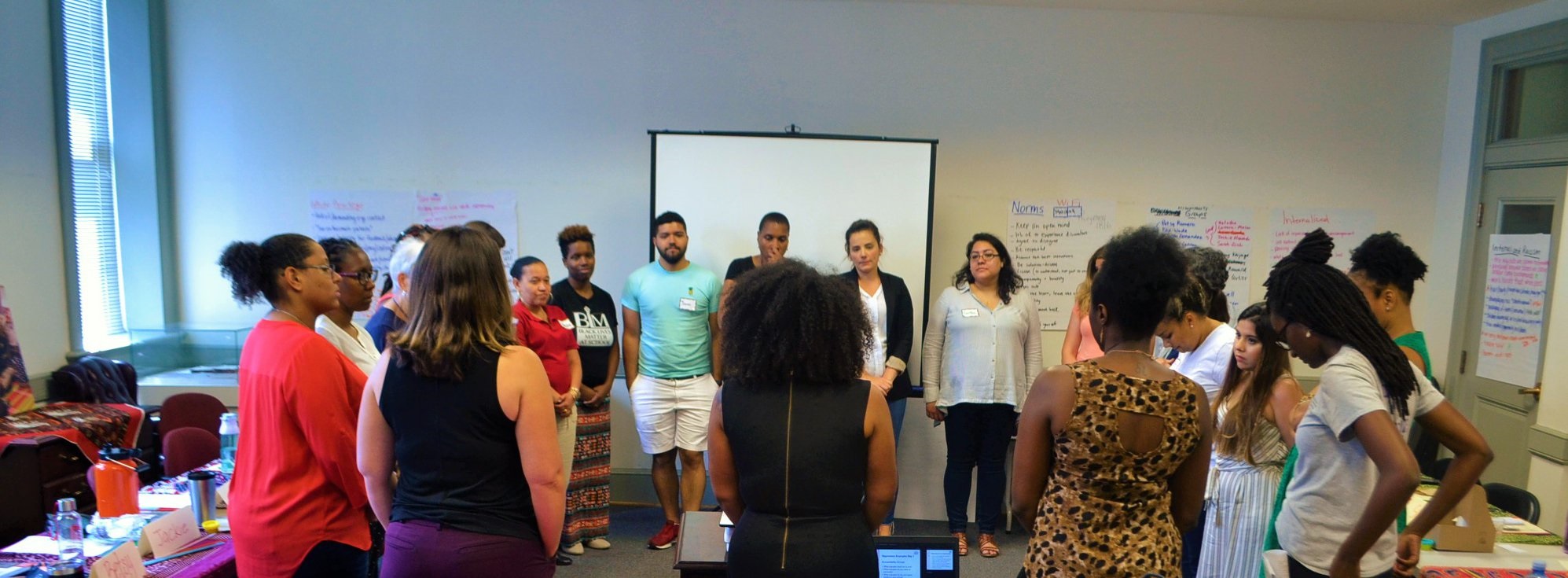Scott Goldstein Oversight Testimony before the DC Council
/Good Morning Chairman Mendelson and Council Members.
As we measure the performance of our education agencies we should start with a focus on the objectives of our education system. I’ll quote former PCSB board member Steve Bumbaugh who frequently says we have one question to answer in education advocacy and policy: “Are we giving poor kids what the rich kids have?” It may seem oversimplified, but when some students walk three blocks to school and others travel two miles and some students have to take double math and reading blocks while other students enjoy arts and music and language education and when some students have stable long-lasting relationships with teachers and others go to schools where nearly half the staff leaves each year - it’s an apt starting place to measure the performance of our education agencies. To me, our objective is to prepare students to be ready for careers, college, citizenship, and life as an adult. And accordingly, we should also ask whether we’re providing all students the opportunities they deserve to expand their horizons through a well-rounded curriculum and empowering them to control their destinies.
We cannot say we’re meeting this standard if we are reducing school budgets even as enrollment rises and so do needs. So we need stable and equitable funding.
We cannot say we’re meeting this standard when less than 1/3 of DC students go to a school they can walk to and some students travel more than two miles a day to seek out a different program. So we need a unified education plan.
We cannot say we’re meeting this standard if our lower-income students are spending 80% of their day in explicit math and reading instruction while higher-income students are receiving an enriching, exciting, relevant, and well-rounded education. So we need standards for well-rounded education.We cannot say we’re meeting this standard if some schools have access to extensive, safe outdoor space at school for class and play while others are afraid to go outside and cannot afford to hire school partners. So we need to fund the request of the DC Coalition for Equitable Outdoor Education for $2 million in grants to outdoor education providers through OSSE.
We cannot say we’re meeting this standard if some students have long-lasting relationships with trusted adults at school while other students lose their adult mentors yearly due to an unsustainable workload for educators. So we need to fund our requests for continued educator wellness grants with local funding, $10 million for flexible scheduling, guaranteed mental health days and higher pay for charter school educators, paraprofessionals and dedicated aides.
We cannot say we’re meeting this standard if our only response to community violence is policing children in school. Here’s the thing, I get that school leaders who have responsibility for their students, want the assistance of MPD. But the problem is that research is crystal clear that SROs make students less safe and more likely to end up in the criminal justice system) and as CM Robert White alluded to, we don’t need armed, uniformed MPD officers with the power to arrest in our buildings to provide safety, instead of investing in community schools, funding restorative justice coordinators for all schools, implementing youth solutions like School Safety Squads.
We cannot say we’re meeting this standard if - for nearly 15 years DC sustains the highest teacher turnover rates in the country - even among urban schools- and when our education agencies refuse to act, the council is too shy to legislate.
We cannot say we’re meeting this standard if some students regularly see themselves in and relate to our educators while some students- our Latina/p students specificallyare still too underrepresented. So we need to increase funding for Grow Your Own programs.
We cannot say we’re meeting this standard if parents feel like they aren’t heard in our education system, and even when huge city-wide surveys show that the number one thing parents say would make a difference is a change in our governance system and council ignores them. If it is our desire to see agency in our students, are we giving agency to our educators? If it is our desire to see our students collaborate, are we allowing our educators to collaborate? If we want to see our students succeed academically, are we ensuring educators have differentiated professional development, time, and resources to prepare and deliver excellent instruction?
In the education system, it’s our educator's job to focus on helping their students succeed, our principal's job to focus on helping their educators succeed, and the district's job to focus on helping principals and schools succeed. It’s the mayor’s job to focus on ensuring all schools have what they need to succeed and, ultimately, it’s your job as the council to make sure each of these things is happening - to ask questions to ensure it, and when action is too slow - to legislate.
Since three minutes is not nearly enough to cover the performance of seven education agencies, I have kept this oral testimony broad, and have included my very detailed performance oversight testimony about each agency in my written testimony (below), which I hope you will find useful as you ask questions of these agencies and hold them accountable in service of students and families. Thank you.
Office of the State Superintendent of Education EmpowerEd has been the recipient of OSSE’s Educator Wellness Technical Assistance Grants. These grants have been a real blessing to the ability of schools to receive educator wellness assistance from organizations like ours that are individualized to the needs of their schools. OSSE has provided appropriate oversight, helped facilitate relationships among the five grantees, and sought to learn from our learning as school partners.
These grants, which have made a huge positive impact on our school partners are set to expire in October with the end of federal dollars. We are advocating strongly that these grants continue with local funding in future years given our needs for educator wellness and retention.
Two years ago, EmpowerEd advocated strongly to begin a local DC “Grow Your Own” program through grants at OSSE to local Education Preparation Providers. Chairman Mendelson ensured these grants made it into the budget and the council passed this teacher preparation program with initial funding of nearly $1.5 million annually. So far, OSSE has implemented the program and sought to support both a pathway for high school students and paraprofessionals. The high school student pathway grant was given to American University and the paraprofessional pathway grant to RELAY- an alternative licensure program. Additionally, $750,000 went to UDC directly for their preparation programs. All of the money however is subject to the same regulations of the act passed by the council. OSSE tells us approximately 12 students have benefited from each pathway so far through AU and RELAY. UDC tells us they have supported 11 full-time students, 14 part-time students, and 7 students with test prep only.
This is not nearly enough. Part of what must be done to improve this is both additional funding but also a focus on ensuring that lower-cost preparation programs receive funding so they can support a higher number of students. We encourage OSSE to work with Trinity University in particular, as a program that has low-cost pathways to many high-need educator licenses, to figure out how they might participate in the program. While OSSE cannot favor one EPP over another, the council should consider changing the legislative language to ask that OSSE prioritize the preparation programs that serve the highest number of DC residents. This would prioritize lower-cost options like UDC and Trinity and result in more students being served.
We also believe that the requirement for paraprofessionals participating in the program be DC residents should be removed. While we want them to live in DC, paraprofessionals often live on sub-living wage salaries and cannot afford to live here. That’s exactly why we need these pathways. So this should not be an entry requirement. There is broad consensus that we need to expand these programs.
One thing our educators would caution against is expanding to online preparation providers without a real quality-control process in place that ensures these programs have deep clinical practice as part of their preparation. Over the past year, OSSE has also completed an engagement process related to a new school accountability system. For OSSE to improve its engagement- it should partner with and rely on organizations more embedded in the community than themselves.
On the subject of the STAR rating system, EmpowerEd engaged nearly five times as many people as OSSE did, as did the State Board of Education. Yet only their official engagement sessions- even if sparsely attended- formed the public record for decision-making. I do think Superintendent Grant has improved communication with the public, but one-way communication is not collaboration. I hope the Superintendent will consider making the monthly State Board monthly public meetings a joint public engagement - to stay beyond her opening statement for testimony from the public and for the Superintendent to participate in Q and A with the public.
For the public to have that access to the Superintendent’s ear, and responsiveness, would be a huge step forward.
The State Board of Education The State Board of Education is still the primary venue for the public to engage with education leaders in our city, hosting more frequent and meaningful monthly public meetings than any other agency. The board has conducted incredibly valuable research, elevated community voices, and is more regularly in touch with our school leaders for honest assessments of need than anyone else in the system.
But the Board and OSSE have struggled to build a trusting partnership. For that reason, I believe the Superintendent should also make the time to publicly respond to questions from StateBoard members at the monthly public session. This would greatly improve transparency, trust, and collaboration. The State Board and OSSE should also establish a process for joint engagement, instead of continually conducting separate engagement sessions and then disagreeing about the path forward because they say they’ve heard different things from the public.
The State Board has demonstrated remarkable success given limited funds, but the Council should- as the bare minimum- consider strongly beefing up the State Board of Education staff and the stipend for board members. We can and should ask the board to do more in our education system. These ward-by-ward elected leaders are more connected to school communities. But we can’t ask them to do more without providing more.
The Office of the Student Advocate and the Office of the Ombudsman continue to perform some of the most vital public services in our education sector, form great partnerships, and provide critical resources. They simply need more resources to do it with.
DC Public Schools There have been many questions about the bloat of the central office in recent years. Here is what I know as someone who regularly interacts with central office staff at both mid-level and senior-level positions. There are good people, dedicated to their work at every level of the central office. Most of them have great ideas and intentions and want to make an impact on student learning and opportunities. But almost every mid-level central office staff person I know feels that the organization of the central office is duplicative and that they spend far too much time making presentations to each other, coordinating between parts of the central office, and trying (often without success) to get their good ideas up the food chain.
There is a senior leadership team - many of whom I also respect- doing work to directly service other members of the leadership team. For example, those overseeing instructional superintendents who in turn oversee school principals. Good instructional superintendents can be a great support to principals and others can be a huge impediment to a principal serving their staff and students in the way they know best. This role ought to be re-evaluated.
There have been talks of making big cuts to the central office or cutting it by determined percentages, but I strongly believe that the DC Council should consider a trusted outside agency conducting a thorough organizational review and audit of the central office to determine necessary positions, duplicative positions and how necessary and helpful those in our actual schools find different services and staff coming from central. We might be surprised to see a need to beef up certain areas while other functions might be better totally reverted to the schools.
We also must tackle trust. I know Chairman Mendelson has, in particular, regularly scrutinized DCPS’ actions and how they affect public trust. When DCPS attends oversight hearings and refuses to answer basic questions about the oversight timeline, or the DME won’t tell Chairman what budget requests they made that went unfulfilled, the Chairman has pointed to these exchanges as evidence that these individuals are hurting trust in their agencies. But our education leaders are human- they don’t want to awkwardly dance around questions or make stoic faces when you call out obvious obfuscation. They’re doing so because our governance system doesn’t allow them to be honest without professional repercussions. But if the council refuses to act on the real root cause- a flawed governance model- DCPS should at least consider hosting its own monthly forum where the public can testify to the Chancellor and Deputy Chancellors and engage in Q and A.
Deputy Mayor for Education I won’t spend extensive time this year testifying about the Office of the Deputy Mayor for Education, largely because my testimony remains unchanged from the previous few years. The largest need is for the DME’s office to actually step into its role and authority and bring stakeholders together to establish a unified plan for education in DC that considers how we best serve students, the need for new programming and schools, resource assessments, and cross-sector learning.
The DME has not done enough, not nearly enough, to help the sectors learn from each other or coordinate our vision for education as a city. They began wading into this area with EdScape, but have seemed to step back in recent years as the DME’s initial formal assessment that we cannot sustain continuing to add small schools was met with controversy.
In a city with half traditional public and half public charter schools- we should be doing much more to ensure that our traditional public schools learn from our charter schools and vice versa and implement real measures to replicate what works.
For example, if we have a significant demand for bilingual and Montessori programs and thousands of people on waitlists for these types of charter schools but the DME does nothing to ensure DCPS builds these programs on its end, we have failed to coordinate as a city, and parents and students suffer. The same goes for learning about instructional approaches, public safety approaches, staff wellness, and more.
Whether schools and the sectors learn from each other is largely left to chance, and that does not serve our schools well.I do want to applaud the DME for taking our recommendation to begin considering equitable access to outdoor space as part of the upcoming Master Facilities Plan. We look forward to seeing these results.
